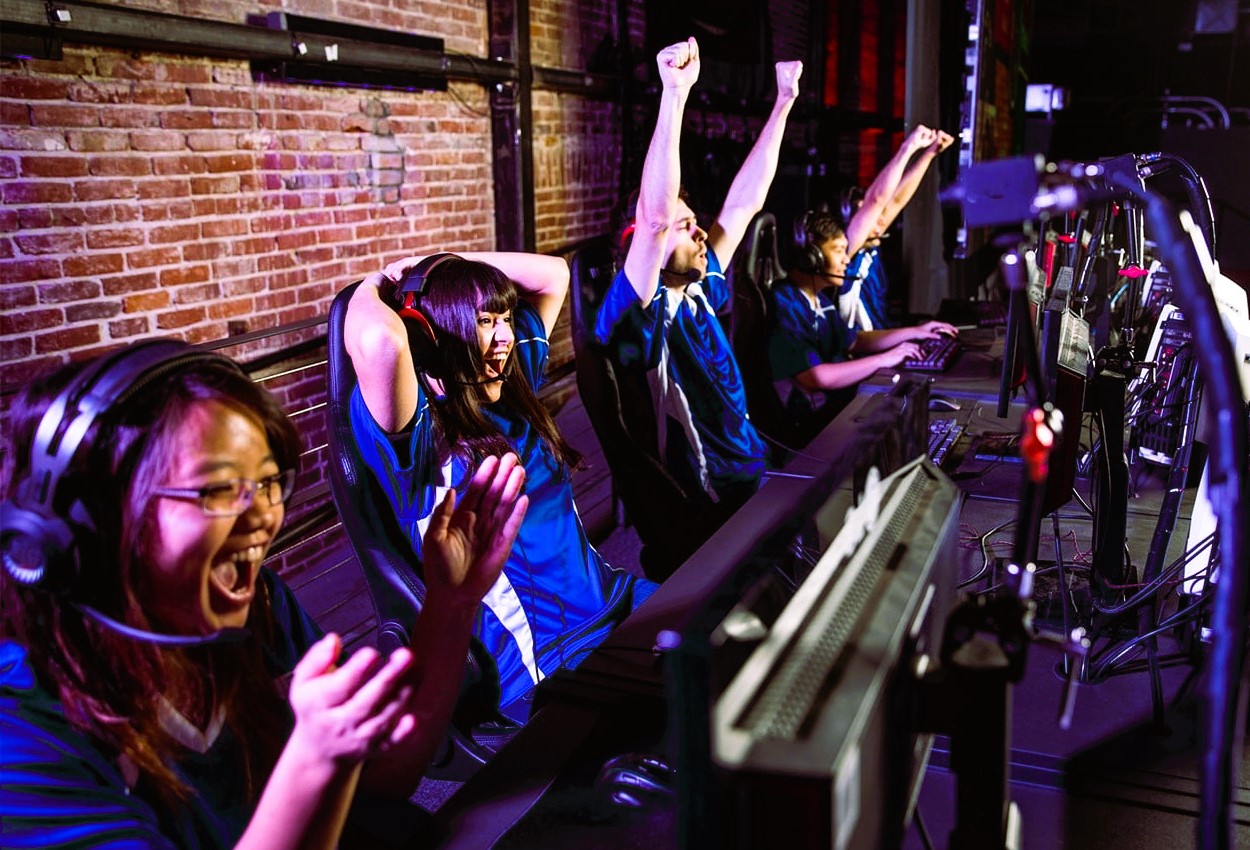In recent years, esports has transformed from a niche hobby into a global phenomenon, influencing the gaming industry and beyond. This rise is not just about increased viewership and participation but also about how competitive gaming is reshaping entertainment, technology, and business models. This article explores the factors driving the rise of esports, its impact on the industry, and what the future may hold.
The Evolution of Esports
Esports, or electronic sports, refers to organized, multiplayer video game competitions, particularly between professional players, individually or as teams. While competitive gaming has been around since the early days of video games, it has gained significant momentum over the past decade.
Early Beginnings
Competitive gaming dates back to the 1970s, with early tournaments like the “Spacewar!” competition held at Stanford University. The 1980s saw the emergence of arcade game competitions, while the 1990s brought about online multiplayer games that allowed players to compete on a global scale.
The Modern Era
The early 2000s marked the beginning of modern esports with the rise of games such as “StarCraft,” “Counter-Strike,” and “Warcraft III.” The introduction of platforms like Twitch and YouTube for live streaming and video content further propelled esports into mainstream consciousness. Today, games like “League of Legends,” “Dota 2,” and “Fortnite” dominate the esports scene, attracting millions of viewers and players worldwide.
The Impact on the Gaming Industry

The rise of esports has significantly impacted the gaming industry in various ways:
Revenue Growth
Esports has become a major revenue driver for the gaming industry. The global esports market was valued at approximately $1 billion in 2022 and is projected to grow substantially. Revenue sources include sponsorships, advertising, media rights, merchandise sales, and ticket sales for live events.
Increased Investment
The influx of investment into esports has been substantial. Major technology companies, traditional sports teams, and venture capitalists are investing in esports organizations, leagues, and infrastructure. This investment has led to the growth of professional teams, high-profile tournaments, and state-of-the-art gaming facilities.
Game Development and Design
Esports has influenced game development, with developers increasingly designing games with competitive play in mind. Features such as balanced gameplay, spectator modes, and in-game analytics are now integral to many popular esports titles. Developers also engage with the esports community to gather feedback and improve their games.
Esports and Mainstream Media
The integration of esports into mainstream media has been one of the most significant changes in recent years.
Broadcasting and Streaming
Esports events are broadcasted on television networks and streaming platforms, reaching millions of viewers worldwide. Major platforms like Twitch, YouTube Gaming, and Facebook Gaming provide dedicated spaces for live streaming esports competitions and content creation. The presence of esports on mainstream media channels has helped elevate its status and reach new audiences.
Celebrity and Influencer Involvement
The involvement of celebrities and influencers in esports has further propelled its popularity. High-profile personalities, including athletes, musicians, and content creators, are participating in and endorsing esports events and teams. Their involvement helps to bridge the gap between traditional sports and esports. Did you like the article? Read also about Top 10 Games.
The Rise of Collegiate and High School Esports
Esports is not only making waves at the professional level but also at the collegiate and high school levels.
Collegiate Esports
Colleges and universities are increasingly offering esports programs and scholarships. Institutions are establishing dedicated esports arenas and forming competitive teams to participate in collegiate leagues. These programs provide opportunities for students to compete at a high level while pursuing their education.
High School Esports
High school esports leagues and tournaments are also gaining traction. Programs and competitions aimed at high school students are being organized, providing a platform for younger players to develop their skills and potentially advance to collegiate or professional levels.
Challenges and Controversies

Despite its rapid growth, esports faces several challenges and controversies.
Player Well-Being
The intense nature of competitive gaming can lead to issues related to player well-being, including burnout and mental health concerns. Addressing these issues is crucial for the long-term sustainability of esports.
Cheating and Fair Play
Cheating and match-fixing remain significant concerns in esports. Ensuring fair play and maintaining the integrity of competitions is essential for preserving the credibility of the industry.
Diversity and Inclusion
Diversity and inclusion in esports are areas of ongoing development. Ensuring equal opportunities for players of all backgrounds and fostering an inclusive environment is important for the growth of the industry.
The Future of Esports
The future of esports looks promising, with continued growth and innovation expected.
Technological Advancements
Advancements in technology, such as virtual reality (VR) and augmented reality (AR), have the potential to transform the esports experience. These technologies may provide new ways to engage with games and tournaments.
Global Expansion
Esports is expanding globally, with emerging markets in regions such as Southeast Asia, South America, and the Middle East. This global growth presents opportunities for new talent and audiences.
Integration with Traditional Sports
The integration of esports with traditional sports continues to evolve. Collaborations between esports organizations and traditional sports teams are becoming more common, leading to cross-promotional opportunities and shared fan bases.
The rise of esports has fundamentally changed the gaming industry, impacting everything from revenue and investment to game development and mainstream media. As the industry continues to grow and evolve, its influence will likely expand further, shaping the future of entertainment and competitive gaming. For more information on the rise of esports and its impact, visit Fandom for comprehensive coverage and updates.
By understanding the current trends and developments in esports, players, fans, and industry professionals can better navigate this dynamic and rapidly evolving field.

